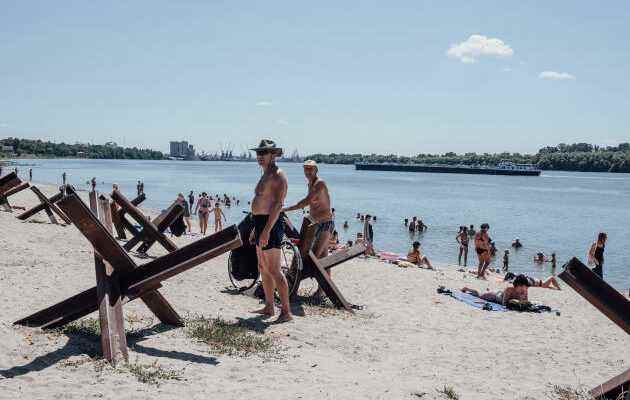ReportageIn this region of southwestern Ukraine, the small ports on the Danube have become outlets for Ukrainian cereals. Exporters, logisticians, traders, transporters… everyone is busy trying to overcome the blocking of the major Black Sea ports.
In Bessarabia, in the far south-west of Ukraine, there is a story circulating right now along the small ports of the Danube. A king, a businessman and a logistician arrive in hell. The devil tells them that they are entitled to a single chargeable telephone call. The king calls his queen to choose his dolphin. Clap of the call: a million dollars. The businessman calls his deputy and appoints his successor. Clap of the call: a million dollars. “Who do you want to call? », finally asks the devil to the logistician. “The Harbor”, replies the other. He calls. “Do we have the wagons?” And the ship, is it on time? » “And the certificates? » “And the barge pilot? » And so on, before hanging up. The devil hands him the note: a dollar. The king and the businessman rise up. The devil answers: “You dialed numbers internationally. He made a local call from hell to hell. »
Welcome to Bessarabia, the hell of Ukrainian logisticians and traders who are trying by all means to get millions of tons of grain out of Ukraine at war to save entire countries from famine. And, incidentally, to avoid bankruptcy for thousands of Ukrainian farmers.
Hell seems far away, however, when you are on the beach of Izmail, on the north bank of this arm of the Danube. If the beach is cluttered with “ïjak”, steel “hedgehogs” intended to prevent the landing of Russian tanks, the inhabitants of Izmail bask there in the sun, some even bathe, a few meters from ships of 7 000 tons or barge trains that cross each other, to the port of Izmail to load grain there, or to Sulina to reach the Black Sea with their load. An apparent nonchalance which is partly due to the fact that on the opposite bank is Romania, a NATO member country. But no one here believes that Russia would take the risk of bombing so close to a member state of the Alliance.
In Izmail, however, as elsewhere along the Danube, the transformation of this part of Bessarabia into a focal point for the world grain trade is worrying. On the local market, where Moldovan, Bulgarian, Russian, Albanian or Ukrainian villagers sell their local produce, there is concern. “I’m afraid the Russians will bomb here, the market is not far from the port”dreads Praskovia Uzunova, a Bulgarian spice seller from the nearby village of Krynychne.
In hotels or rented houses along the Danube, traders are busy on the telephone. Due to a lack of storage capacity in these small villages which were not intended for this, the flow between ships, trucks and barges must be managed as closely as possible. “But with 140 ships waiting off Sulina, how can you be sure that your ship will arrive in Izmail on time, with the burden of obtaining certificates, knowing that trucks are scattered everywhere and you have to unloadexplains a trader. I’m active on 45 Viber, Telegram or WhatsApp groups to manage contracts and flows, I’m exploding! »
You have 76.19% of this article left to read. The following is for subscribers only.
